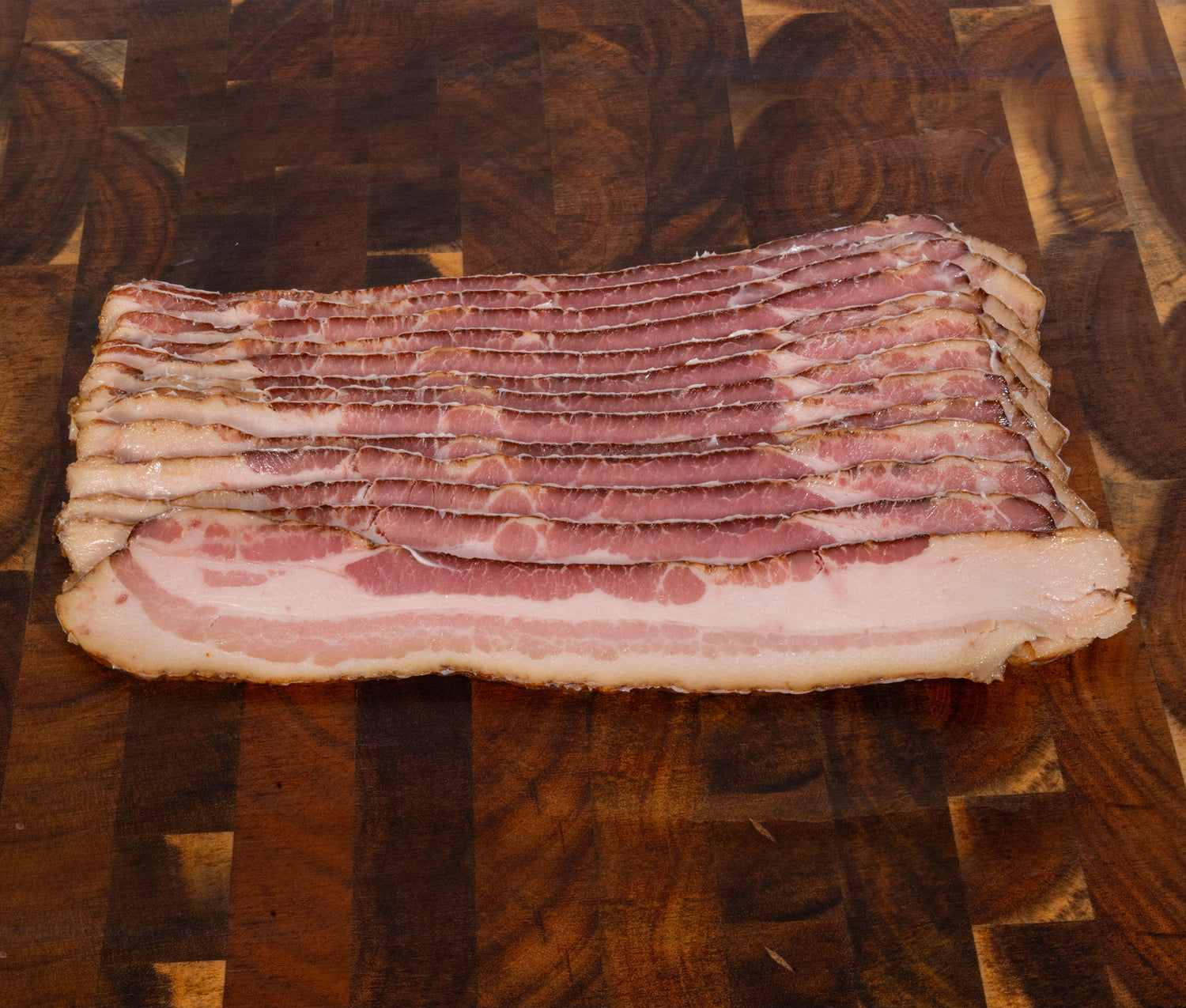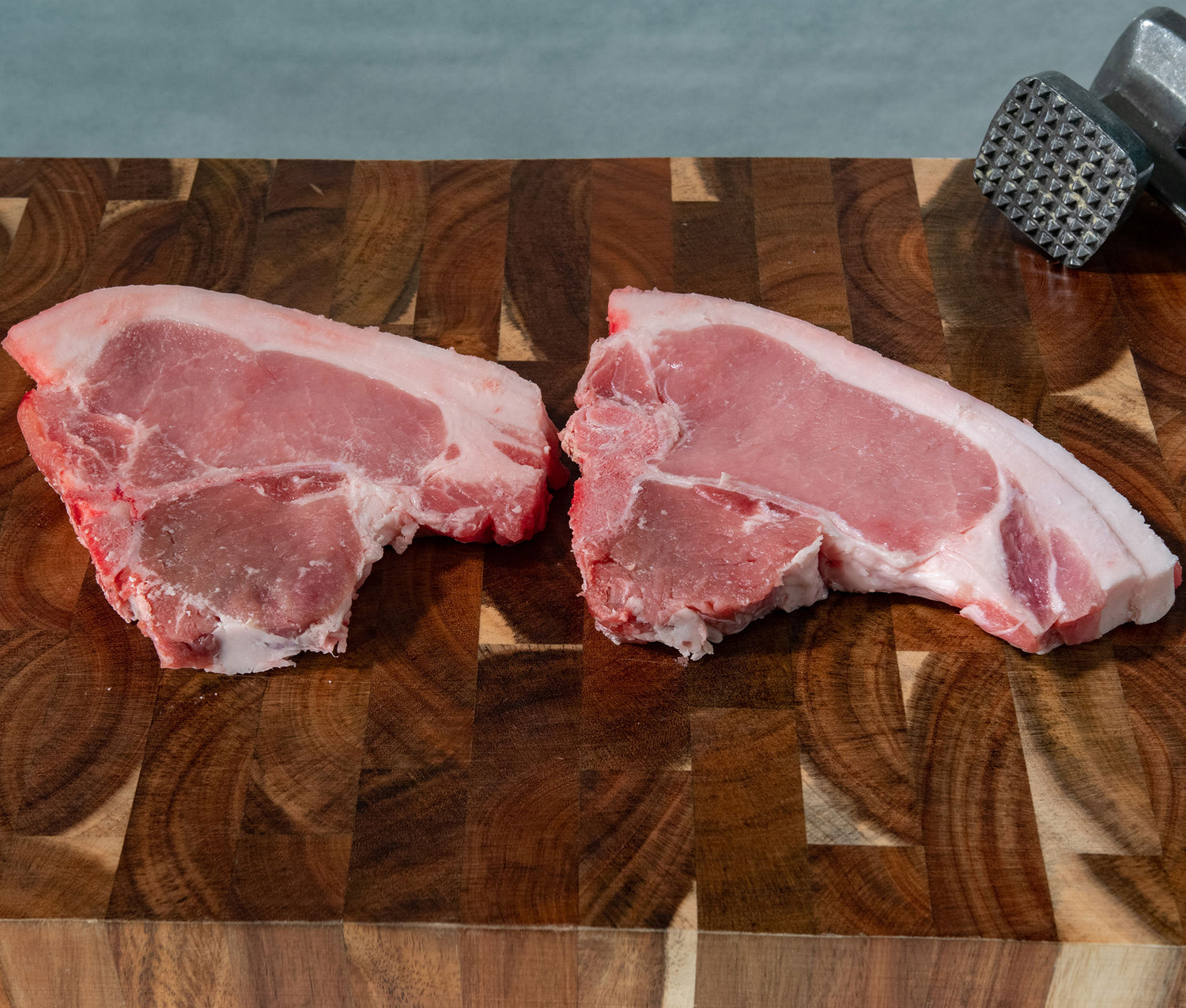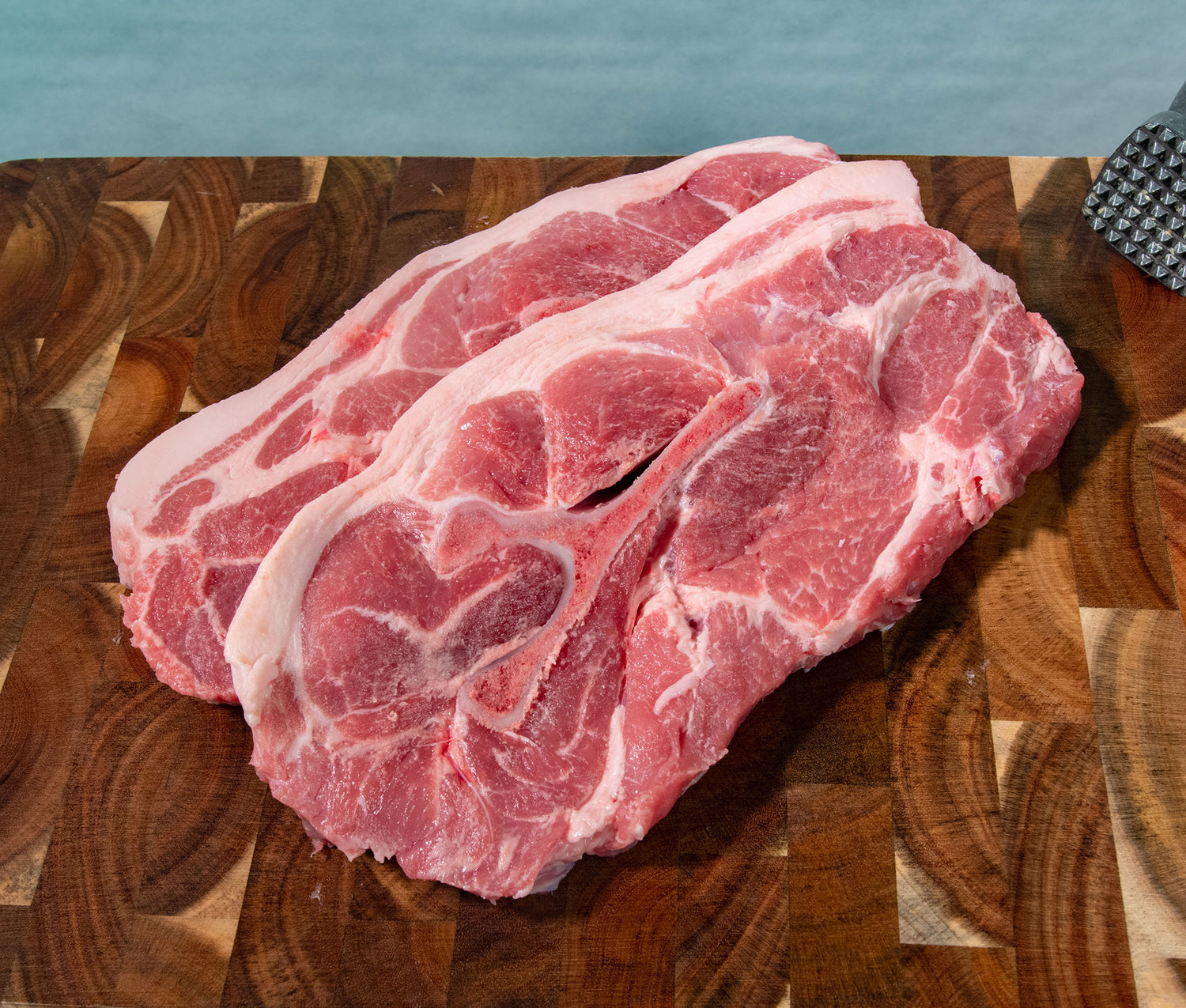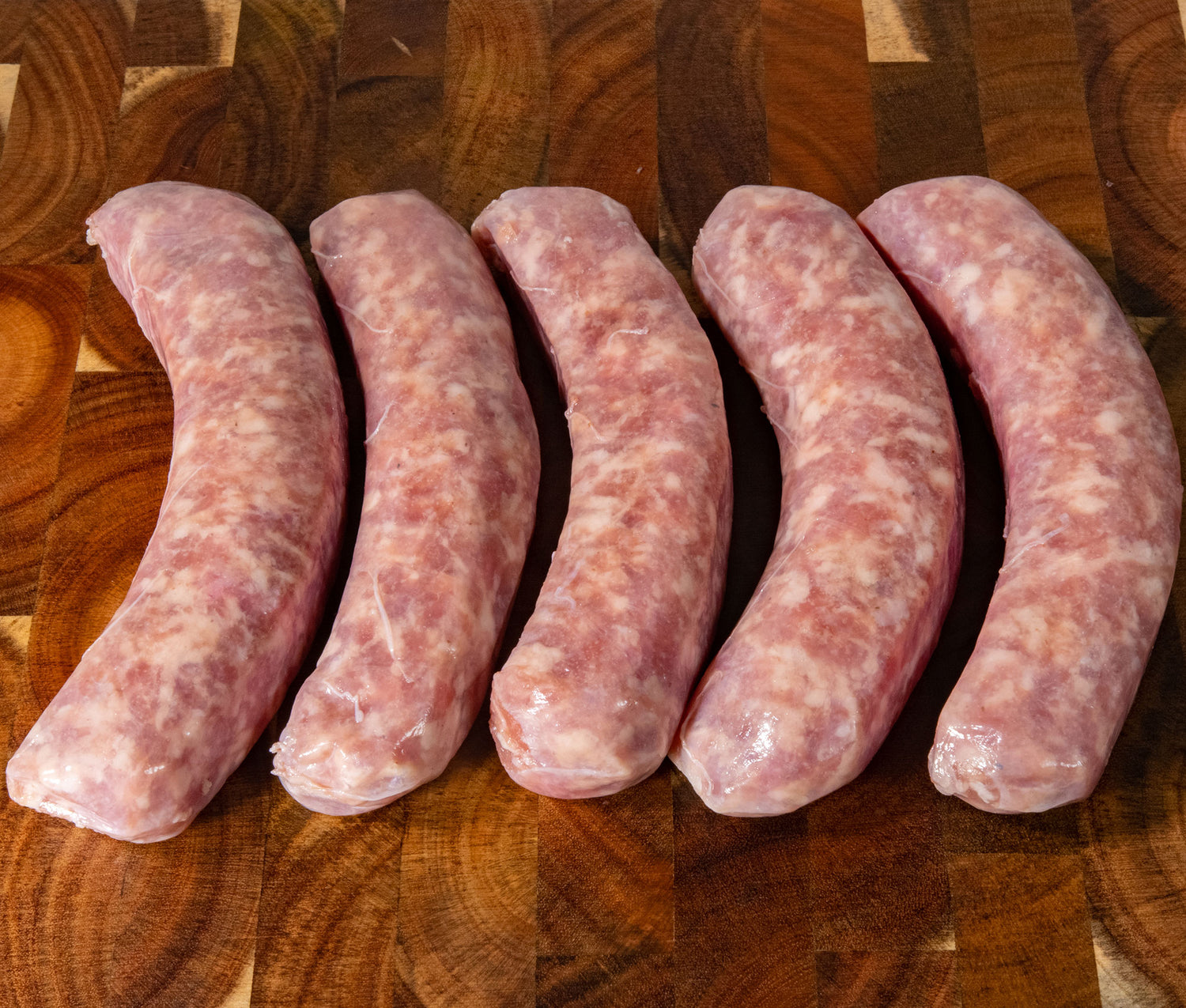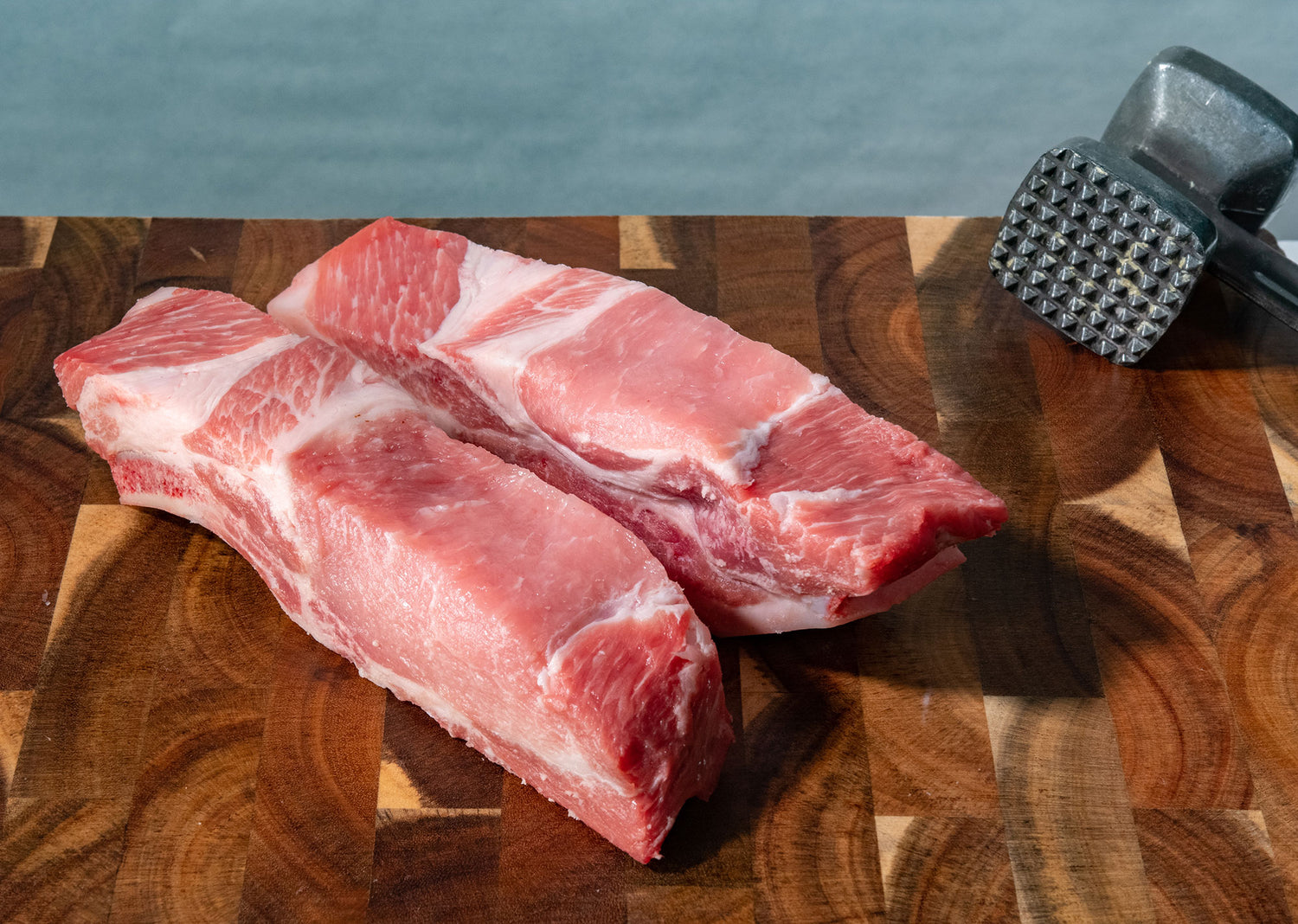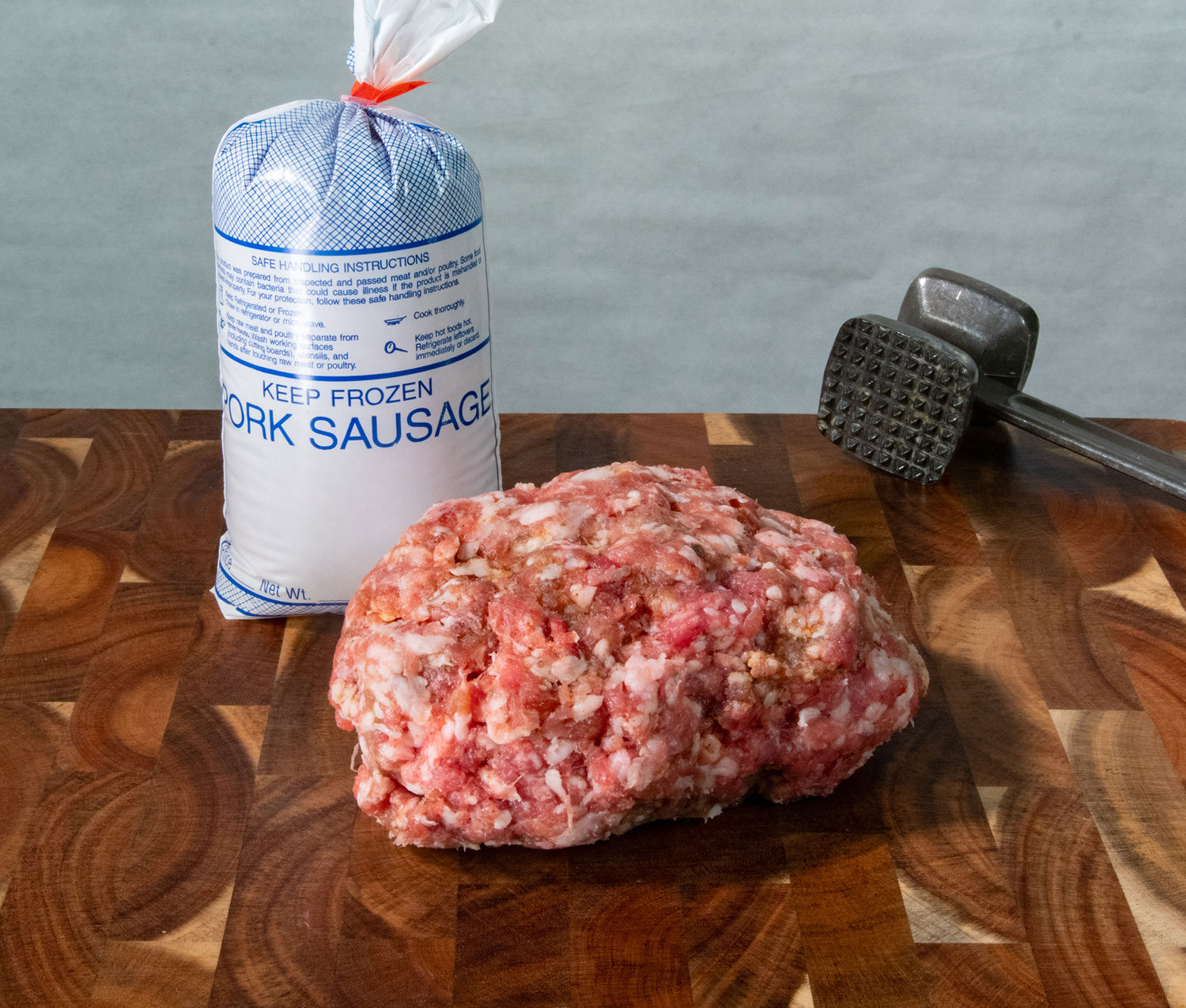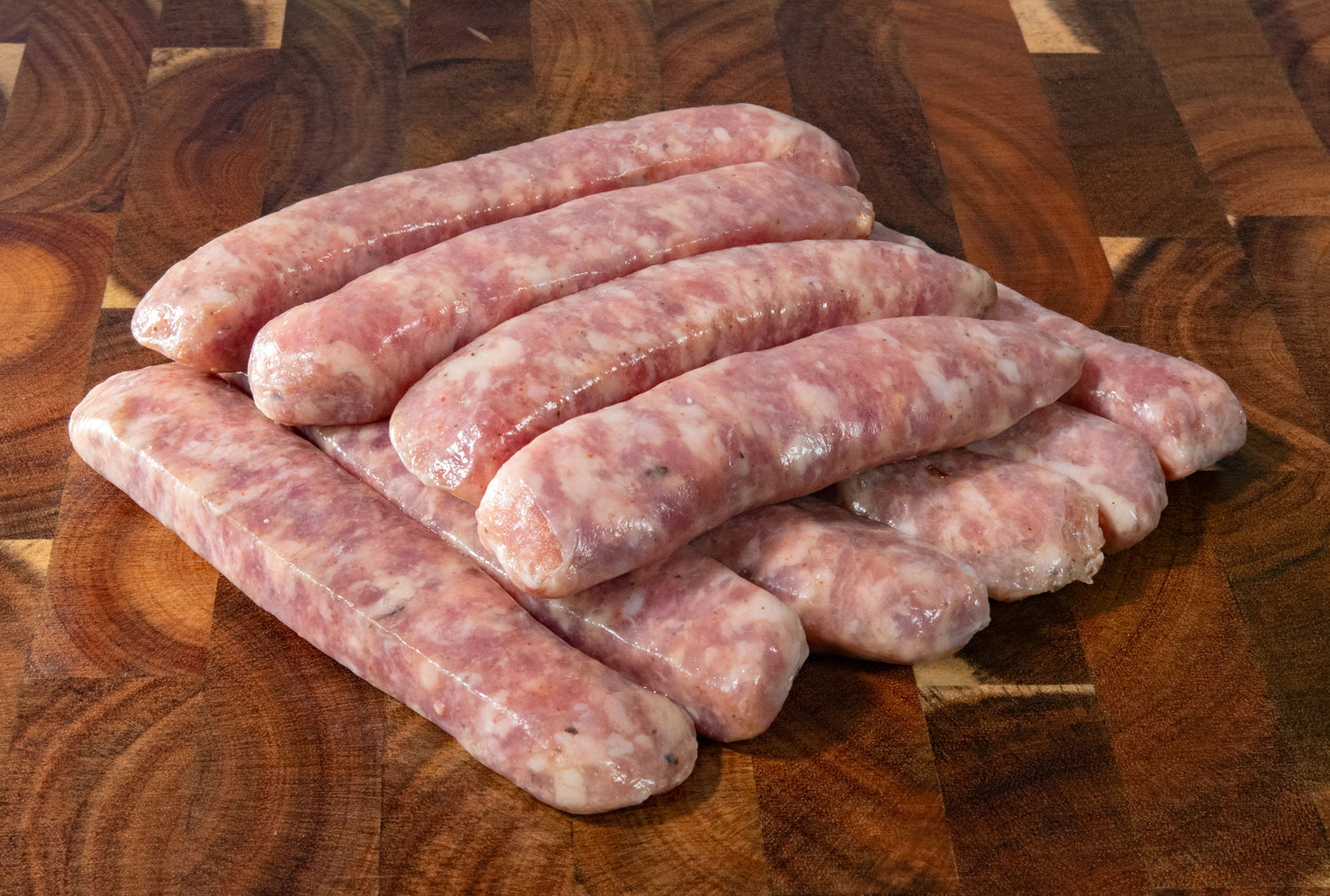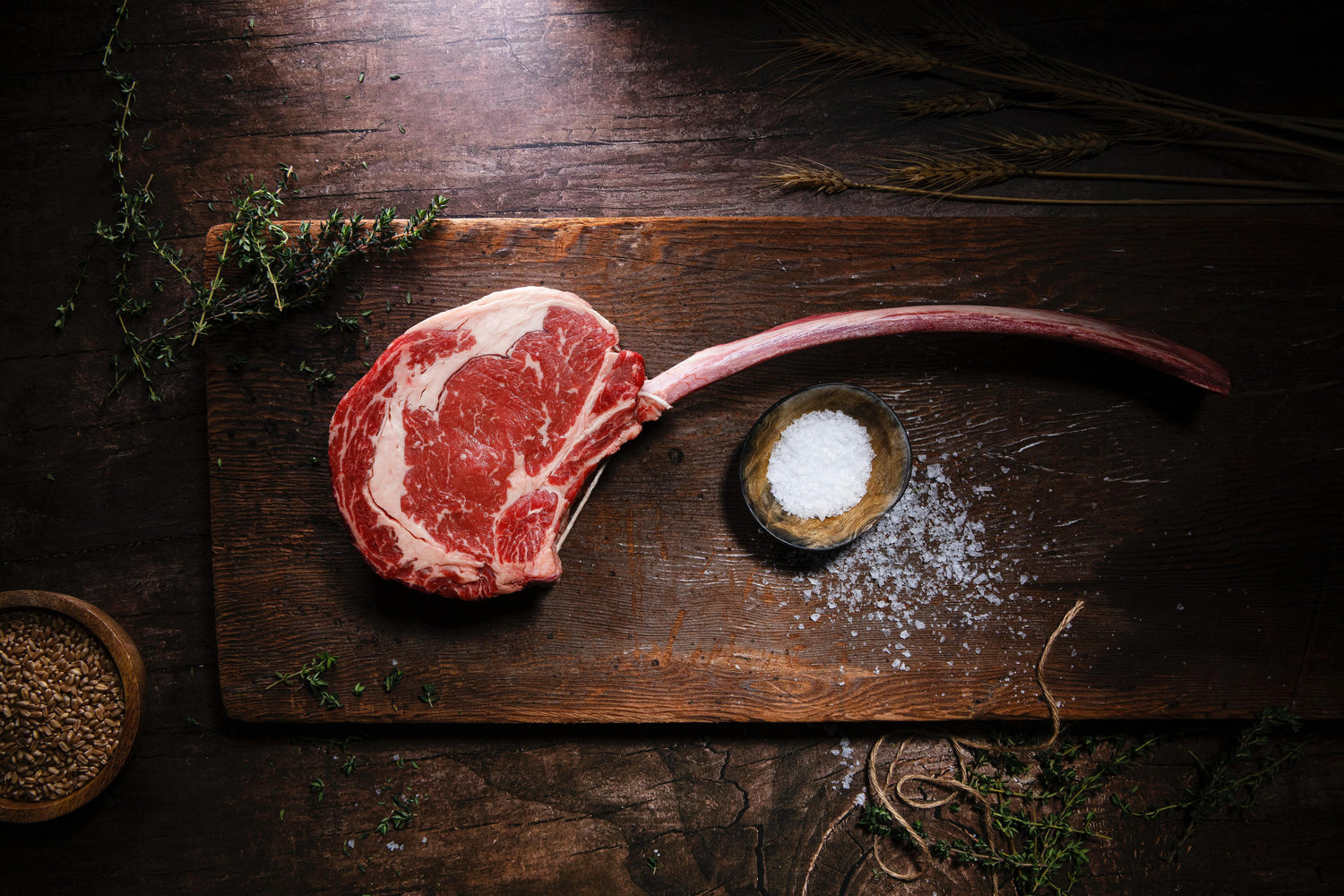Pasture-Raised Half Hog
- A few left in stock! 50
🐖 Half Hog – $550
Pasture-Raised | Non-GMO | Delivered to Your Door
Treat yourself and your family to the best-tasting pork you’ll ever have. Our Half Hog package is packed with flavor, quality, and value — sourced from pasture-raised pigs, fed a 100% non-GMO diet, and cared for the right way.
💥 What You Get:
-
Approximately 70–90 lbs of premium pork, butchered & vacuum-sealed
-
Includes a variety of cuts:
-
Bacon, pork chops, sausage, ribs, roasts, hams & more
-
-
Custom butchering options available upon request
-
Packaged freezer-ready
🐷 Why It’s Better:
-
Pasture-Raised: Animals live naturally and stress-free
-
Non-GMO Feed: No hormones, no antibiotics – just clean nutrition
-
Rich, Deep Flavor: Once you taste it, grocery store pork won’t compare
-
Ethically Sourced, Locally Raised right here in Baldwin-Woodville, WI
Couldn't load pickup availability

